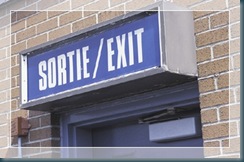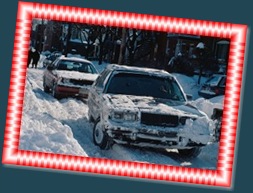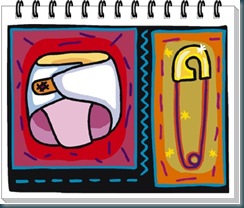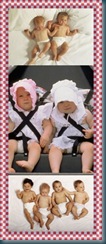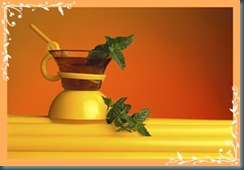 Before I give you a second set of French to English herbs and spices, I'll tell you about one of my favorites - mint.
Before I give you a second set of French to English herbs and spices, I'll tell you about one of my favorites - mint.
I used to suffer from tummy pain. I was either bloated, constipated or would have those "shooting pains" making me bend over. Laxatives helped but relief was temporary at best.
One day I was surfing the Net for ""abdominal pain" and I landed on Dr. Weil's web site. His advice was to drink plenty of peppermint tea or to chew on fennel seeds.
I tried the peppermint tea first. Best free advice I ever got! I no longer suffer from chronic abdominal pain.
I'm not saying that peppermint is the answer to stomach trouble for everyone, but it did help me. The usual advice about seeing your doctor if you have chronic pain stands.
I've always wondered about the difference between mint, peppermint and spearmint. Here's what I found:
Mint is the general name and there are many kinds, two of which are peppermint and spearmint. According to the Field Guide of Herbs and Spices by Aliza Green (Quirk Books, 2006), peppermint is a natural hybrid of water mint and spearmint. It has smooth oval leaves with serrated edges and is of a dark, green color, giving off a peppery, yet cooling flavor.
Spearmint has oval pointed leaves, a deep green color and a cooling but not pungent flavor. Ms. Green says that today, most spearmint is used in the chewing gum industry.
Now, part 2 of your French to English lexicon:
| FRENCH | ENGLISH |
| menthe | mint |
| menthe poivrée | peppermint |
| menthe à épis (ou menthe verte) | spearmint |
| graine de carvi | caraway seed |
| anise étoilé | star anise |
| épine vinette | barberry |
| sarriette | savoury |
| sauge | sage |
| aneth | dill |
| piment de Jamaïque | allspice |
| annatto (ou achiotte) | annatto |
| oseille | sorrel |
| estragon | tarragon |
| marjolaine | marjoram |
Which spices or herbs do you like?

